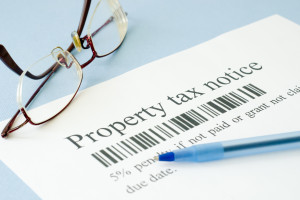PA lawmakers dueling over alternatives to property taxes

By Andrew Staub | PA Independent
HARRISBURG, Pa. — The issue of property tax reform — a point of conversation that has spanned decades — is percolating again.
Senate Bill 76, a proposal to eliminate school property taxes and replace them with money from personal income and sales taxes, returned to the spotlight Wednesday after 41 organizations joined forces to speak out against the legislation, known as the Property Tax Independence Act.
“We’re getting wind that this is getting legs,” said Sam Denisco, vice president of government affairs for the Pennsylvania Chamber of Business and Industry.
The chamber has teamed with the left-leaning Pennsylvania Budget and Policy Center and 39 other groups, hoping to make their own noise about the bill, Denisco said. They don’t like it, arguing it could hamstring retailers, hurt poor people and leave schools with a volatile funding stream.
BILLING DISPUTE: Pennsylvania lawmakers could soon vote a bill that would eliminate property taxes, but not everybody thinks it’s the best solution for school funding.
“We are united today in our concern about this legislation, particularly that it does more harm than good and should not be enacted,” said Sharon Ward, executive director of the Pennsylvania Budget and Policy Center.
Despite criticism of the legislation, bill proponents have been heartened by strong support. Thirteen Republicans and 13 Democrats have signed on as co-sponsors.
The bill included extensive input from local taxpayer groups. David Baldinger heads the Pennsylvania Taxpayers Cyber Coalition and has called the legislation “truly the people’s bill.”
The prime sponsor, state Sen. David Argall, R-Schuylkill, said the bill could emerge from the Finance Committee and head to a vote in the next few weeks. He contends the legislation would create a fairer system to fund public schools.
“The current tax can make people homeless, and I can’t believe that these groups would be defending the status quo,” Argall said.
That hasn’t stopped the chamber and others from sounding alarms about the legislation.
Brian Rider, president and CEO of the Pennsylvania Retailers’ Association, said Pennsylvania’s sales tax is already “regressive,” and increasing it from 6 percent to 7 percent — as the bill stipulates — would change purchasing patterns and hurt the retail industry and the poor.
Property tax elimination would not help business owners who lease their properties, Rider and Denisco said. Instead, they would face a tax hike.
“So they’re really getting no relief whatsoever,” Denisco said.
The bill also would broaden the sales tax to include items such as candy, newspapers and caskets. Dry cleaning services, admission to spectator sports and legal services would also be taxed under the legislation.
Food items that are not part of the WIC program would be subject to the sales tax, as would articles of clothing and footwear valued at more than $50. That has fueled concern that Pennsylvania won’t be able to market certain tax-free shopping, and the sales taxes could hurt families.
“We feel that there are some better proposals that have been considered in the past that are being floated in Harrisburg right now that are much better ways to address the situation of property taxes,” Rider said.
The state House passed a different property tax reform bill earlier this year.
Sponsored by state Rep. Seth Grove, R-York, the legislation — known as the Optional Property Tax Elimination Act — would give school districts the power to phase out or reduce property taxes through an elimination tax that could include a combination of an earned income tax, business privilege tax and mercantile tax.
Baldinger has chastised Grove’s legislation as a political bill that washes state lawmakers’ hands when it comes to reducing the property tax burden and does not guarantee relief. Grove has responded that taking a hard line on total elimination may not foster reform.
“Unfortunately, individuals who say elimination or nothing have walked away with nothing for over a decade,” Grove said earlier this year. “So it’s time we move forward with solutions that can work, are achievable and have proven to work.”
Not surprisingly, Argall sees the issue differently. He said Grove’s bill was “dead on arrival” when it reached the Senate. It won’t draw enough support to be the solution for property tax reform, he said.
“We believe that the solution is to eliminate it forever,” Argall said.
Andrew Staub is a reporter for PA Independent and can be reached at Andrew@PAIndependent.com. Follow @PAIndependent on Twitter for more.







